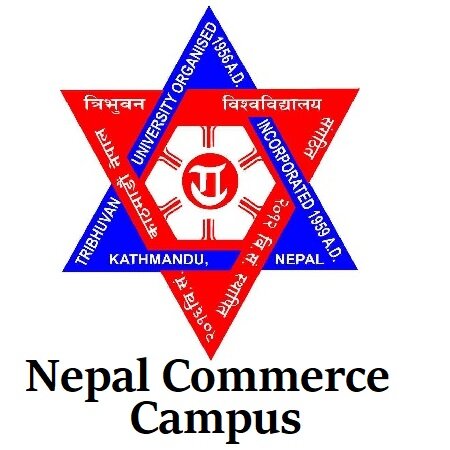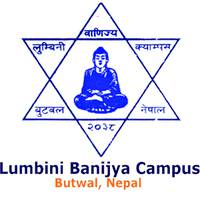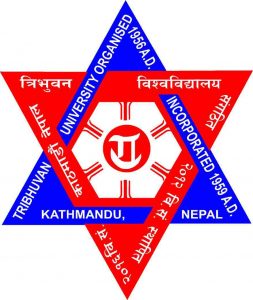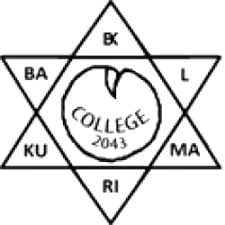
Table of Contents

































About BBA
A Bachelor in Business Administration(BBA) at Tribhuvan University is one of the most demanding and chosen graduates in Nepal. BBA course falls under the Faculty of Management(FOM). It has a consequent goal of producing enormous educated professional students in the business industry and at various government levels. It is a four-year (8 semester) bachelor program constituting 120 credit hours. The curriculum is designed to cover all emerging market demands and to provide in-depth and hands-on knowledge of the principles of banking and finance, marketing management, travel and tourism management, information management system, industrial management, and many more. These courses provide specialization for the students and the specialization subjects can be chosen by the students in the seventh and eighth semesters. The FOM helps to pursue networking with the management industries within a country and also helps to exchange knowledge abroad. The students can be able to develop and exchange new knowledge, technology, and methods of higher-level efficiency in the management of the business and public entities. FOM focus interminably to innovate modern, social, and ethical technology-based management educational Programmes skills for the interest and values which all are important considerations for business administrations.
Why to study BBA in Nepal?
The perspective of running the Bachelor of Business Administration(BBA) program is to develop skills in related business and finance fields. FOM designed BBA to develop socially responsive, creative, and result-oriented management professionals to fill up the supervisory positions in the rapidly growing business sector in Nepal. This program develops the skills that are essential for the banking and finance field. The design and implementation of the BBA course offer new challenges when compared to other management courses. The recent emergence of global business in the field of banking, industries, marketing helps to yield qualified manpower. The curriculum of this course is designed in such a way that a student who enrolls in this course will be benefited from different expectations and can work at different banks and finance, industries, NGOs, and INGOs.
Objective
Objectives of the BBA program of Tribhuvan University are as;
-
To develop skills in the student to accept the rapidly changing global business market.
-
Prepare students to take up middle-level supervisory positions in the business sector.
-
To prepare and motivate students so that they can be able to do the best out of them at the postgraduate level.
-
To impart highly professional management education with the merger of information management and computer courses.
-
Develop students’ skills in object-oriented business management and be capable of understanding and solving practical business problems creatively.
Eligibility Criteria
The candidates who are applying for admission to the Bachelor of Business Administration program in Tribhuvan University should fulfill certain criteria;
-
Students should have completed 10+2 equivalent levels from any university/ board recognized by Tribhuvan University.
-
Students should secure at least a second division or 1.8 CGPA in their 10 +2 or equivalent level are eligible to enroll in this program.
-
Eligible applicants are required to appear in the entrance test commonly known as the Central Management Admission Test (CMAT) conducted by the Faculty of Management. The test will follow the international testing pattern and standards. It includes the areas like:
a.Verbal ability
b.Quantitative ability
c.Logical reasoning
d.General awareness
-
There shall be altogether one hundred (100) objective questions in the CMAT containing twenty (25) questions in each section with a total weight of 100 marks. Students must secure a minimum of 40% in the CMAT in order to qualify for the interview.
-
Interview:
Applicants securing the above cut-off point marks in the CMAT will be short-listed. Only short-listed candidates will be interviewed and selected for admission.
-
Merit List:
Admissions of the students in the BBA program of Tribhuvan University will be strictly on the basis of merit list. Merit list is prepared on the basis of:
a.60% of CMAT Entrance examination.
b.30% of marks secured in percentage plus two or equivalent.
c.10% Interview.
Admission Criteria of BBA
Certain criteria need to be fulfilled by students to study BBA. The criteria are listed below:
-
Students should collect and submit the admission form to their interested college nearby. Generally, the admission form opens every year in the month of Bhadra/Ashoj.
-
No need to fill out the form from different colleges, one form is sufficient to be eligible to attend the entrance exam for BBA. More than one form can be invalid.
-
Students must have secured 40% marks in entrance out of 100% to clear the entrance exam and get admission.
Fee Structure
The fee structure of BBA at government colleges is almost the same. Government colleges have very reasonable fees in comparison to private colleges. The fee structure for BBA ranges from 3.5 lakhs to 9 lakhs.
Scholarship in BBA
Scholarship:
The different scholarship scheme is offered by different TU-affiliated colleges. Saral Shikshya is one such educational platform that is serving quality education as well as helping the students to get 100% scholarships at different colleges.
For more information about entrance preparation and scholarship at different colleges please visit us at https://saralshikshya.com/college.
EXAMINATION, EVALUATION AND GRADING SYSTEM
The BBA program will be executed through the semester system. The regular program shall be completed in eight semesters. The internal (ongoing) evaluation and the external (end of the semester) examination shall carry 40 percent and 60 percent weightage respectively. The semester examinations shall be conducted by FOM. The final grade of the student shall be determined by the overall performance in the internal and external examinations.
Passing Grade and Grading System
The final evaluation of students is done through the examination conducted by Tribhuvan University. Students must secure a minimum grade ‘B’ or Grade Point Average (GPA) of 3.00 in the internal evaluation in order to qualify to appear in the semester examination. In order to pass the semester examination, the student must secure a minimum of grade ‘B’ or the Cumulative Grade Point Average (CGPA) of 3.00. The grading system shall be as follows:
Letter Grade Cumulative Grade Point Average (CGPA) Marks Obtained in Percent Divisions / Remarks A 4.00 90 - 100 Distinction A- 3.70 - 3.99 80 - 89.9 Very Good B+ 3.30 - 3.69 70 - 79.9 First Division B 3.00 - 3.29 60 - 69.9 Second Division B- 2.70 - 2.99 50 - 59.9 Pass in Individual Subject F Below 2.70 Below 50 Fail
MAKEUP/RETAKE EXAM
Make-up/Retake examination shall be conducted as per the semester guideline. Attendance Students are required to attend regularly all theory and practical classes, assignments, study tours, field trips, seminars, and presentations as required by the course. A student is required to attend at least 80 percent of such activities in order to qualify for the semester examination.
CREDIT TRANSFERS AND WITHDRAWL
The program allows students to transfer the credits earned by them in a similar program of other universities recognized by Tribhuvan University. A student who has partially completed the BBA program and would like to discontinue his / her studies shall also be allowed to withdraw from the program. In such cases, a certificate specifying the credit earned by the student in the program shall be provided.
GRADUATION REQUIREMENTS
The BBA program extends over eight semesters (four academic years). The BBA degree is awarded upon its successful completion of all the following requirements specified by the curriculum. The successful completion of 120 credit hours as prescribed with a minimum passing grade in all courses with a CGPA of 3.00. A minimum of grade ‘B’ was obtained in the Internship. Completion of courses for the fulfillment of the requirements of the BBA program must occur within seven years from the time of registration.
CURRICULAR STRUCTURE
The BBA program requires the students to study a total of 120 credit hours.
The curricular structure of the program comprises the following four separate course components.
I. Management and Allied Courses 84 Credit Hours
II. Computer Related Courses 12 Credit Hours
III. Specialization Area Course 18 Credit Hours
IV Summer Project 03 Credit Hours
V Internship 03 Credit Hours Total 120 Credit Hours
COURSE COMPOSITION Business Foundation Courses: Credit Hours ENG 201 English -I 3 ENG 202 English- II 3 ENG 203 Business Communication 3 ECO 203 Micro Economics for Business 3 ECO 204 Macro Economics for Business 2 ECO 205 Seminar on Contemporary Issue of Macro Economics 1 MTH 201 Business Mathematics I 3 MTH 202 Business Mathematics II 3 PSY 202 Psychology 3 STT 201 Business Statistics 3 SOC 203 Sociology for Business Management 3 SOC 204 Nepalese History and Politics 3 MGT 231 Foundation of Business Management 3 MGT 232 Leadership and Organizational Behavior 2 MGT 233 Seminar in Leadership and Organization Behavior 1 MGT 234 Legal Environment for Business in Nepal 3 MGT 205 Operations Management 3 MGT 236 Business Environment 3 MGT 240 Strategic Management 3 MGT 239 Business Ethics and Corporate Governance 3 MGT 237 Entrepreneurship & Business Resource Mapping 2 MGT 238 Practicum on Business Plan 1 ACC 201 Financial Accounting 3 ACC 202 Cost and Management Accounting 3 ACC 204 Taxation and Auditing 3 FIN 206 Fundamentals of Finance 3 FIN 208 Financial Markets and Services 3 MKT 201 Fundamentals of Marketing 3 FIN 207 Financial Management 3 RCH 201 Business Research Methods 3 Computer Related Courses IT 231 IT and Applications 3 IT 232 Database Management 3 IT 233 Business Information System 3 IT 204 E-Commerce 3 Specialization Area Courses (any Six Courses) Banking and Finance BNK 202 Financial Derivatives 3 BNK 203 Working Capital Management 3 BNK 204 Investment Analysis 3 BNK 206 Commercial Banks Management 3 BNK 208 Microfinance Management 3 BNK 209 Insurance and Risk Management 3 BNK 210 Fundamentals of Cooperative Management 3 BNK 221 Corporate Financing Decision 3 Industry and Services Management ISM 202 Productivity Management 3 ISM204 Project Management 3 ISM 205 Supply Chain Management 3 ISM 206 Service Operations and Management 3 ISM 208 Industrial Relations 3 ISM 209 Total Quality Management 3 ISM 210 Creativity and Innovation Management 3 ISM 211 Employability skills Management 3 Micro Enterprise Management MEM 201 Management of Micro Enterprise 3 MEM 202 Business Plan for Micro Enterprise 3 MEM 203 Micro Finance 3 MEM 204 Cooperative Management 3 MEM 205 Social Entrepreneurship 3 MEM 207 Project Planning & Entrepreneurial Marketing 3 MEM 208 Micro Insurance 3 Sales and Marketing Management MKM 201 Consumer Behavior 3 MKM 203 Fundamentals of Selling 3 MKM 204 Services Marketing 3 MKM 206 Distribution Management 3 MKM 208 Public Relations and Media Management 3 MKM 209 Retail Marketing 3 MKM 210 Marketing Research 3 MKM 211 Internet Marketing 3 MKM 212 Branding 3 MKT 217 Fundamentals of Advertising 3 MKM 213 Sales Management 3 Account Specialization ACS 201 Taxation in Nepal 3 ACS 202 Accounting for Banking 3 ACS 203 Corporate Accounting 3 ACS 204 Budgeting 3 ACS 205 Corporate Auditing 3 ACS 206 Accounting for Business 3 ACS 207 Accounting for Insurance 3 ACS 208 Accounting for Financial Analysis 3 PRJ 350 Summer Project 3 MGT 350 Internship 3
COURSE CYCLE
First Semester 15 Cr
ENG 201 English - I 3
MGT 231 Foundation of Business Management 3 ECO 203 Micro Economics for Business 3 MTH 201 Business Mathematics - I 3 IT 231 IT and Applications 3 Second Semester 15 ENG 202 English - II 3 ACC 201 Financial Accounting 3 ECO 204 Macro Economics for Business 2 ECO 205 Seminar on Contemporary Issues of Macro Economics 1 MTH 202 Business Mathematics II 3 IT 232 Database Management System 3 Third Semester 15 Cr ENG 203 Business Communication 3 STT 201 Business Statistics 3 MGT 232 Leadership and Organizational Behavior 2cr MGT 233 Seminar in Leadership and Organizational Behavior 1cr FIN 206 Fundamentals of Finance 3 ACC 202 Cost and Management Accounting 3
Fourth Semester 15 Cr
MGT 234 Legal Environment for Business in Nepal 3 MGT 235 Human Resource Management and Technology 3 IT 233 Business Information System 3 MKT 201 Fundamentals of Marketing 3 FIN 207 Financial Management 3
Fifth Semester 15 Cr MGT 236 Business Environment 3 ACC 204 Taxation and Auditing 3 MGT 205 Operations Management 3 SOC 203 Sociology for Business Management 3 PSY 202 Psychology 3
Sixth Semester 15 Cr RCH 201 Business Research Methods 3 FIN 208 Financial Markets & Services 3 SOC 204 Nepalese History and Politics 3 MGT 237 Entrepreneurship & Business Resource Mapping 2cr MGT 238 Practicum on Business Plan 1cr IT 204 E-Commerce 3
Seventh Semester 15Cr ………………. Specialization 3 ………………. Specialization 3 ……………… Specialization 3 MGT 239 Business Ethics and Corporate Governance 3 PRJ 350 Summer Project 3 Eighth Semester 15 Cr …………… Specialization 3 …………… Specialization 3 …………… Specialization 3 MGT 240 Strategic Management 3 MGT 350 Internship 3
